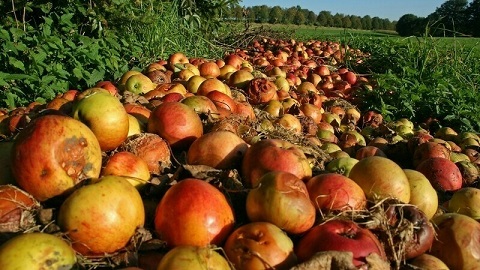Catalonia discards 26% of its horticultural production before being marketed
The horticultural sector wastes 46.5 million tons of food per year in Catalonia, which is equivalent to 26% of its global production of vegetables.

In monetary terms, the losses calculated in Catalonia amount to 19 million euros per year.
This is the result of a study conducted by the Institute of Environmental Science and Technology of the Universitat Autònoma de Barcelona (ICTA-UAB), which has quantified the food losses in this sector, its socioeconomic impact and the products that are most discarded.
Food loss is a critical problem in the current climate and socioeconomic crises we are facing. The products discarded in the production phase can reduce the quantity of food available to consumers and increase the economic costs for producers. Additionally, they are grown using limited natural resources such as water, land and energy, which means that part of these resources are not being used effectively.
Among all the crops produced in Catalonia, 11 products contribute to 80% of vegetable production (excluding potatoes) and are thus key in the management of food losses. These are cabbage, lettuce, watermelon, pumpkin, zucchini, tomato, cucumber, artichoke, cauliflower, green beans and onion.
ICTA-UAB researchers establish the three main reasons why a large amount of these foods is not marketed. The first type of loss is formed by food that is not harvested by farmers in the field - called avoidable loss - because harvesting is not profitable for them due to the low prices at which intermediaries pay for the vegetables. Another type of loss - called possible avoidable loss - is due to the fact that the product does not meet the quality standards established by the market for its sale, either because it does not have the expected color, shape or size. The third group of food loss - unavoidable loss - is due to technical issues, such as damage to the product due to errors in its collection or negligence on the part of the collectors.
In monetary terms, the losses calculated in Catalonia amount to 19 million euros per year. These are mainly associated with avoidable losses (61%) that mostly come from watermelon, lettuce and cauliflower crops.
In terms of quality (21%), zucchini, tomatoes, and onions are relevant because between 10 and 15% of the marketed product is discarded. "They get spoiled early and, when damaged, are not fit for long storage times in warehouses," explains Pietro Tonini, researcher at ICTA-UAB. Only 17% of the lost value is due to an unavoidable or technical cause. "This would correspond to vegetable pieces that have been spoiled by machinery or when picking them from the plant," says Tonini.
In the horticultural sector, reducing food loss is essential both to meet national and international policy goals aiming to halve food wastage by 2030, and to meet the increasing demand for vegetables associated with the promotion of healthier and sustainable diets. The figures, which were calculated based on 2020 data, are extrapolable to other periods.
Researchers have identified measures to minimize food loss and adapt to a changing climate. They highlight the need to apply solutions to control, plan and invest in crops, market solutions and financial support to producers.
The study proposes short-term recommendations, such as the selling of "ugly" products, and stresses the need for long-term strategies to address systemic issues. The aim is to benefit both consumers and farmers, ensuring a win-win approach, as well as comprehensive food loss reduction strategies.
Pietro Tonini recommends that farmers plan yearly crops using predictive models based on agronomic and meteorological remote sensors and historical data of production. He advises diversifying vegetable production through added-value local products and selling them through multiple distribution channels. The processing of surpluses should be encouraged, to convert them into higher-value products and extend the shelf life.
The public administration should encourage farmers to redistribute surplus products with tax incentives. "They should also promote short supply chain distribution systems, such as farm shops and agricultural cooperatives, and encourage consumers to buy seasonal and non-commercial products," Tonini adds.
He also recalls the importance of protecting farmers from unfair trading practices "such as refusing returns of unsold products and avoiding fees like marketing to wholesalers that reduce economic margins".
Report: Food loss in the Catalan horticultural sector : Where is the problem and how can we deal with it?